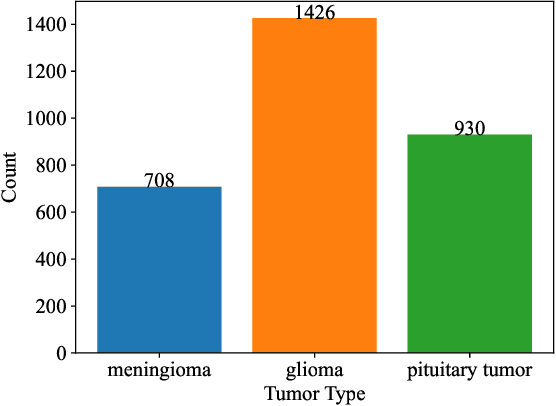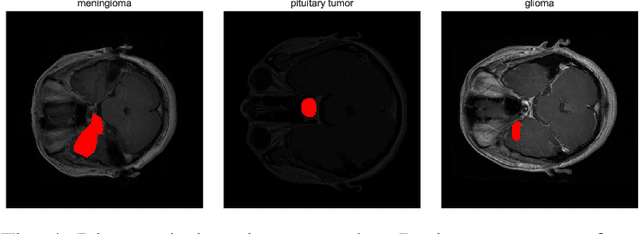Abdullah Al Omar Galib
Brain Tumor Diagnosis Using Quantum Convolutional Neural Networks
Jan 30, 2024



Abstract:Integrating Quantum Convolutional Neural Networks (QCNNs) into medical diagnostics represents a transformative advancement in the classification of brain tumors. This research details a high-precision design and execution of a QCNN model specifically tailored to identify and classify brain cancer images. Our proposed QCNN architecture and algorithm have achieved an exceptional classification accuracy of 99.67%, demonstrating the model's potential as a powerful tool for clinical applications. The remarkable performance of our model underscores its capability to facilitate rapid and reliable brain tumor diagnoses, potentially streamlining the decision-making process in treatment planning. These findings strongly support the further investigation and application of quantum computing and quantum machine learning methodologies in medical imaging, suggesting a future where quantum-enhanced diagnostics could significantly elevate the standard of patient care and treatment outcomes.
Quantum State Tomography using Quantum Machine Learning
Aug 20, 2023Abstract:Quantum State Tomography (QST) is a fundamental technique in Quantum Information Processing (QIP) for reconstructing unknown quantum states. However, the conventional QST methods are limited by the number of measurements required, which makes them impractical for large-scale quantum systems. To overcome this challenge, we propose the integration of Quantum Machine Learning (QML) techniques to enhance the efficiency of QST. In this paper, we conduct a comprehensive investigation into various approaches for QST, encompassing both classical and quantum methodologies; We also implement different QML approaches for QST and demonstrate their effectiveness on various simulated and experimental quantum systems, including multi-qubit networks. Our results show that our QML-based QST approach can achieve high fidelity (98%) with significantly fewer measurements than conventional methods, making it a promising tool for practical QIP applications.
 Add to Chrome
Add to Chrome Add to Firefox
Add to Firefox Add to Edge
Add to Edge